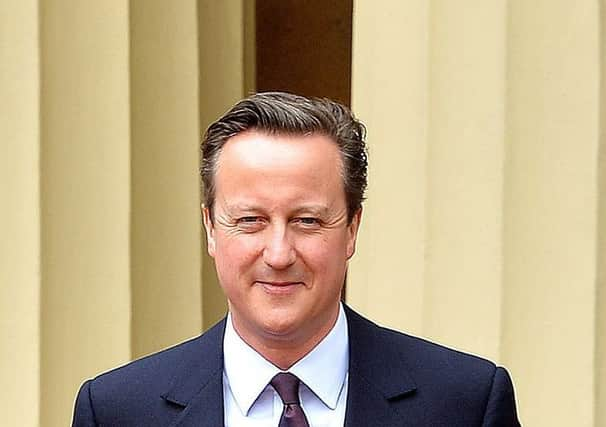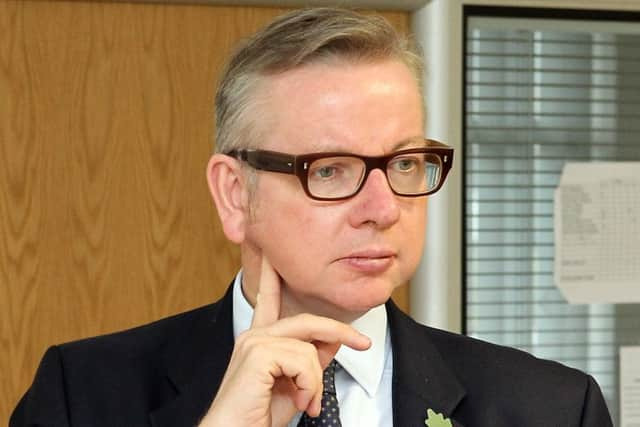Gove returns as Cameron shapes next Government amid hints he will not appoint a Deputy PM


David Cameron confirmed that he will replace Chris Grayling, who becomes Leader of the House of Commons.
The Prime Minister also confirmed Nicky Morgan in her post as Education Secretary, in what is being described as a “huge vote of confidence” in her performance.
Advertisement
Hide AdAdvertisement
Hide AdThe return of Mr Gove to the Cabinet table will be seen as vindication after his move last year from education secretary to chief whip, in what was widely perceived to be a demotion.


At the time it was assumed that Mr Cameron had concluded that he had made too many enemies in his battles with the teaching profession and had become a liability ahead of the general election.
It was being emphasised in Whitehall that Ms Morgan would be carrying forward his flagship education reforms, including a dramatic increase in the numbers of academies and free schools.
Mr Grayling, meanwhile, will take on responsibility for the Government’s constitutional reforms including the further devolution of powers to Scotland promised during by the Westminster parties during the referendum campaign.
Advertisement
Hide AdAdvertisement
Hide AdAt the same he will take charge of legislation to give English MPs a veto over England-only laws at Westminster - so-called English votes for English laws.
“We will keep our promise to create the strongest devolved government anywhere in the world for Scotland,” Mr Grayling told The Sunday Telegraph.
“But there can’t be a complete constitutional settlement for the United Kingdom unless it also offers fairness to England. We are all passionate about safeguarding the Union and all of this is essential to preserving it for the future.”
Mr Grayling also takes the role of Lord President of the Council - overseeing the work of the Privy Council - which had been associated with the Commons Leader position but was handed to Liberal Democrat Nick Clegg as deputy prime minister in the coalition government.
Advertisement
Hide AdAdvertisement
Hide AdElsewhere it was reported that disability minister Mark Harper was being lined up for a move to the crucial post of Chief Whip, with responsibility for maintaining parliamentary discipline.
The reshuffle was revealed after angry anti-austerity protests against the new Tory Government took place outside Conservative headquarters and Downing Street.
Having increased Conservative ranks at Westminster to 331, securing a 12-vote absolute majority in the Commons, Mr Cameron will be preparing to push through his manifesto agenda in its entirety.
But he will be aware that he remains vulnerable to backbench Tory rebellions, which would only have to muster seven MPs to threaten him.
Advertisement
Hide AdAdvertisement
Hide AdThe changes come after Mr Cameron reappointed Chancellor George Osborne, Foreign Secretary Philip Hammond, Home Secretary Theresa May and Defence Secretary Michael Fallon to their old posts within hours of his reinstallation in 10 Downing Street.
The Prime Minister has a greater scope for patronage among Conservative MPs now that he no longer has to make space in his Cabinet for five Liberal Democrat MPs as well as a dozen or more in the lower ministerial ranks.
Mr Osborne’s significance in the new administration was reinforced by his appointment as First Secretary of State - the highest ranking Cabinet minister and effectively number two to the PM.
The award of the title, previously held by William Hague, will fuel expectations that Mr Cameron will not appoint a deputy prime minister to replace Nick Clegg.
Advertisement
Hide AdAdvertisement
Hide AdMr Cameron must now draw up a Queen’s Speech for the State Opening of Parliament on May 27, which is likely to include measures to drive through the £30 billion austerity package - including £12 billion of welfare cuts - which Mr Osborne says is needed to eliminate the state deficit by 2017/18.
At the same time he will seek to press ahead with plans for the renegotiation of Britain’s membership of the European Union in time for an in/out referendum in 2017.